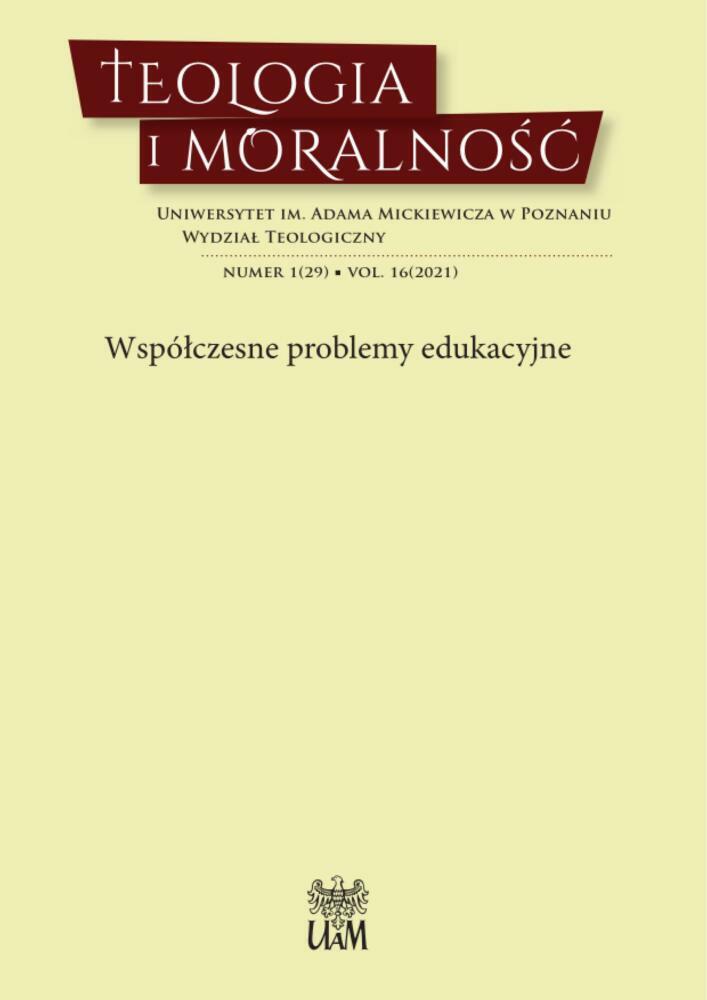Abstract
The article presents changes taking place at universities amid transformations of the modern world, such as changes in the area of work, the development of the digital economy and dynamic technological evolution that justify the necessity for lifelong learning. New technologies have revolutionised the way people work and learn, adapting their skills to new challenges, which indicates the change of educational reality. The trend of these transformations tends to be defined as the revolution of the education inscribed in the phenomenon of global educational culture. In the context of the above-mentioned changes, the significant role of the universities transferring the dogma of creativity from its research to educational mission is shown and emerging trends in this field are discussed, especially as regards universities as centres of lifelong learning. These changes were described as a process from University Lifelong Learning (ULLL) to Lifelong Learning Universities (LLLU).
References
Altbach, Filip. Reisberg, Liz and Rumley, Laura. 2009. Trends in Global Higher Education. Tracking an Academic Revolution. UNESCO.
Alheit, Peter. 2009. Całożyciowe uczenie się i kapitał społeczny. Teraźniejszość. Człowiek. Edukacja. 2009 nr 4 (48).
Aoun, Joseph. E. 2017. Robot-proof higher education in the age of artifi cial inntelligence. Cambridge: The MIT Press.
Baum, Sandy, Pender, Matea and Welch, Meredith. 2016. The Benefi ts of Higher Education for Individuals and Society. Trends in Higher Education Series, The College Board. Brzeziński, Jerzy M. 2004. O osobliwościach uniwersyteckiego kształcenia. W: Wiesław Ambrozik, Kazimierz Przyszczypkowski, red. Uniwersytet. Społeczeństwo. Edukacja. Red. Wiesław Ambrozik, Kazimierz Przyszczypkowski. Poznań: Wydawnictwo Naukowe UAM.
Brzeziński, Jerzy M. 2017. O psychologii, nauce i uniwersytecie, Poznań: Wydawnictwo Naukowe Wydziału Nauk Społecznych. De Viron, Francoise and Davis, Pat. 2015. From University Lifelong Learning to Lifelong Learning Universities: Developing and Implementing Eff ective Strategies. W: The Role of Higher Education in promoting Lifelong Learning, edited by Jin Yang, Chripa Schneller, Stephen Roche. 40-60. Hamburg:UNESCO Institute for Lifelong Learning.
Engaging in Lifelong Learning: Shaping Inclusive and Responsive University Strategies. 2011. Edited by Hanne Smidt and Andree Sursock. Brussels: EUA Publication.
Gola, Wojciech i Jędrzejczak, Helena Anna i Michalik, Sebastian. 2020. Uczenie się przez całe życie w szkołach wyższych. Potwierdzanie efektów uczenia się uzyskanych w drodze edukacji nieformalnej i uczenia się nieformalnego jako przykład realizacji idei lifelong learning. Warszawa: Instytut Badań Edukacyjnych.
Griffi n, Colin. 2001. From education policy to lifelong learning strategies. W: The age of learning. Education and the knowledge society, edited by Peter Jarvis. London: Kogan Page. Karta Uniwersytetów Europejskich w sprawie uczenia się przez całe życie. 2008. Bruksela. www. eua.be
Konkluzja Rady w sprawie społecznego wymiaru szkolnictwa wyższego. 2013. Dziennik Urzędowy Unii Europejskiej C168/02.
Horn, Michael B. Laxton, Amber and Lifshits Yury. 2016. 10 Trends Ahead for Continuing Education. Entangled Solutions.
Luksha, Pavel. Cubista, Joshua. Laszlo, Alexander. Popovich, Mila and Ninenko, Ivan. 2018. Global Education Futures Report: Educational Ecosystems For Societal Transformation: Global Education Futures.
Melosik, Zbyszko. 2009. Uniwersytet i społeczeństwo. Dyskursy wolności, wiedzy i władzy. Kraków: Impuls.
Misja, wizje i cele strategiczne szkolnictwa wyższego Polsce w perspektywie 2020 roku. Raport cząstkowy. 2009. Ernst & Young, Instytut Badań nad Gospodarką Rynkową.
Morgan-Klein, Brenda and Osborne, Michael. 2007. The Concepts and Practices of Lifelong Learning. London and New York: Routlege.
Moyle, Kathryn. 2015. Global trends in higher education policies. www.research.acer.edu.au/
Osborne, Michael, Rimmer, Russel and Houston, Muir. M. 2015. Adult Access to Higher Education an International Overview. In The Role of Higher Education in Promoting Lifelong Learning,
edited by Jin Yang, Chripa Schneller and Stephen Roche. Hamburg: UNESCO Institute for Lifelong Learning.
Program Rozwoju Szkolnictwa Wyższego do 2020 r. Część II, Misja społeczna uniwersytetu w XXI wieku. 2015. Dokument opracowany przez Zespół pod kierownictwem ks. prof. Andrzeja Szostaka, KRASP, Warszawa.
Program Rozwoju Szkolnictwa Wyższego do 2020 roku. Część III, Diagnoza szkolnictwa wyższego. 2015. red. Jarosław Górniak, KRASP. Warszawa.
Solarczyk-Ambrozik, Ewa. 2018. Całożyciowe uczenie się jako idea edukacyjna, polityka, strategie działań i zmieniający się krajobraz rzeczywistości. Studia Edukacyjne, nr 51, 23-39.
Solarczyk-Ambrozik, Ewa. 2020. Przeobrażenia pracy i zmiany wzorów przebiegu karier a globalna kultura edukacyjna – kompetencyjny wymiar planowania karier edukacyjno-zawodowych. W: Edukacja dorosłych a planowanie karier edukacyjno-zawodowych, red. Ewa Solarczyk-Ambrozik, Monika Christoph, Renata Konieczna, 17-31. Poznań: Wydawnictwo Naukowe UAM.
Solarczyk-Ambrozik, Ewa. 2020. Rynek pracy w gospodarce cyfrowej – nowe wyzwania edukacyjne. W: Jednostka. Edukacja. Organizacja. red. Stefan M. Kwiatkowski, Magdalena Piorunek. 174-188, Warszawa: Wydawnictwo Naukowe APS.

